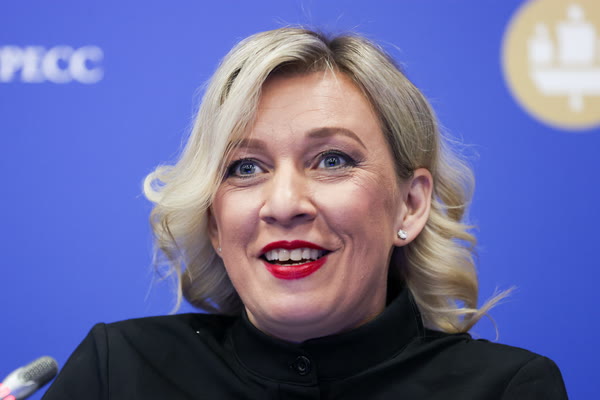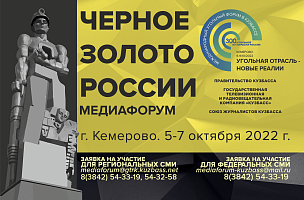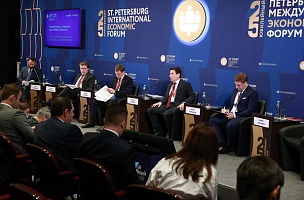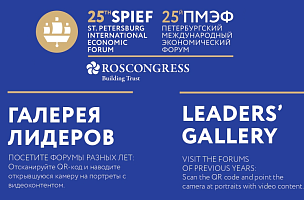Key conclusions
People need to learn to fact-check information on their own
“We understand that fakes deeply affect our lives. What is curious, is that people understand it very well too. Moreover, according to our polling more that 90% of people want to investigate and label fakes. It is an unusual discovery for us. Usually, users are not so passionate about anything,” Vladimir Tabak, General Director, Dialogue ANO; General Director, Dialogue Regions ANO.
“These fakes, this disinformation used to be a decisive force. Today, I believe it is the opposite. Today, people have the power to resist. First, by checking the information. Second, by spreading the counterinformation. Third, just by having access to various information sources,” Maria Zakharova, Director, Department of Information and the Press, Ministry of Foreign Affairs of the Russian Federation.
PROBLEMS
Quick spread of fake news and the inability to fully erase them
“I have my own resources, I have a chance to speak directly to you – to media representatives, my colleagues, my comrades. I can resolve this situation pretty much immediately. But what should we do with the information heap that he or she [author of the fake, – Ed.] or their colleagues have published? <…> The essence of fake news problem is that they cannot be taken down. They live on. Like it is not enough that the author persists, they will live on in reposts, screenshots, links, quotes, descriptions, and so on,” Maria Zakharova, Director, Department of Information and the Press, Ministry of Foreign Affairs of the Russian Federation.
“Anti-fake memorandum that was signed last autumn by the largest media resources and Internet platforms is a very good sign. Aside from agreements between participants, legislation matters a lot. Today, we practically do not implement it. Indeed, you can never win the war against fake news. They will carry on no matter what: they will change, adapt, merge with the environment, and look for their own antidote. New spreading mechanisms will come around,” Aleksandr Khinshtein, Chairman of the Committee of the State Duma of the Federal Assembly of the Russian Federation on Information Policy, Information Technology and Communications.
Critical thinking must develop in order to battle fake news
“Emotional intellect is a popular term now. It is not just trendy – it is part of sociology, part of psychology. It is one of the facets of our modern world. Emotional intellect kicks in when a person perceives information, it bypasses their consciousness, and a person does not bother to check it, but forms an opinion based purely on emotions. This is a perfect breeding environment for fake news,” Maria Zakharova, Director, Department of Information and the Press, Ministry of Foreign Affairs of the Russian Federation.
“There is so many fake news sources now. We need to learn to block our emotions about news for a moment, try to find the source <…> the origin of information and only then form an emotional attitude towards it,” Konstantin Prydybailo, Special Correspondent, RT TV Channel.
“Maria Zakharova was right talking about emotional intellect because when lies spread it creates a domino effect. <…> This is why we need critical thinking when we read the news – it is first. Second: is prank a fake? <…> We need to set them apart, only education can protect the society from fake news,” Mikhail Shakhnazarov, Journalist, Publicist.
SOLUTION
Launching content on TV and online that teaches fake news resistance, implementation of programmes in schools and universities
“We are launching a project called Noodles, basically it is a fact-checking service. It will have an app inside Russian social networks where one could verify information. At any rate, we are addressing this issue together with fact-checkers and media. At the same time, as we are launching this service, we see the demand from the audiences to make it interactive somehow,” Vladimir Tabak, General Director, Dialogue ANO; General Director, Dialogue Regions ANO.
“Critical thinking needs to be stimulated and, subsequently, so does network thinking. First, I believe schools and universities need digital hygiene programmes, fact-checking programmes that teach how to tell fake news from real news. The rest of the population should be addressed through media platforms,” Kristina Potupchik, President, Open New Democracy Fund (FUND).
“When the military operation began fake news started pouring in. Ministry of Education immediately launched special lessons, including lessons on fake news. They are supposed to give skills on figuring out what is really going on, a minimal skill set. It is obviously not enough. Starting this school year, from 5 September we are introducing ‘Lessons That Matter’: lessons, where we are going to explain the basics of media literacy. We are going to promote media literacy from the very early age,” Anton Nazarov, Advisor to the Minister of Education of the Russian Federation.
For more information, visit the Roscongress Foundation’s Information and Analytical System at roscongress.org.






